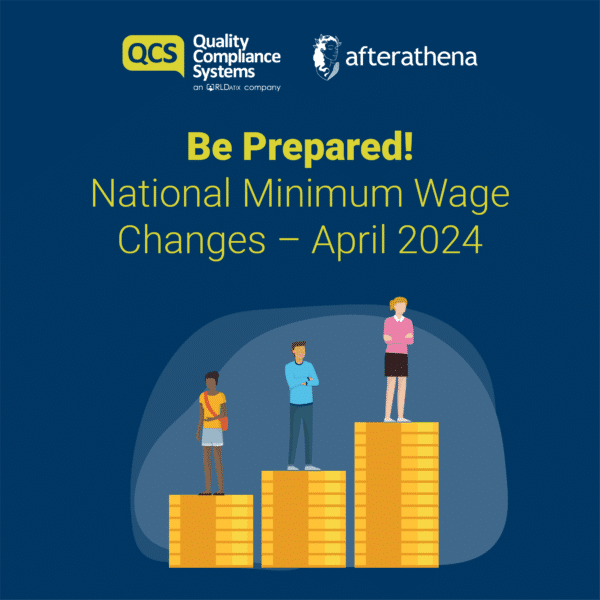The largest ever increase in National Minimum Wage (“NMW”) is set to apply from the 1 April 2024, so now is the time to ensure you are ready for the upcoming changes.
For the first time, the National Living Wage will apply to all workers aged 21 and over, whereas previously, this rate of pay only applied to those aged 23 or over. The new rates for the minimum wage, which will apply from 1 April 2024, are as follows
- 21 and over: £11.44
- 18-20: £8.60
- Under 18 and apprentices: £6.40
This is the largest ever increase announced by the Government, with the minimum pay for 21 and overs increasing by £1.02 (a 9.8% increase). Given the current cost of living crisis, this increase in wages will no doubt be a welcome boost for many workers. However, the significant increase in NMW will no doubt have an impact on many employers, particularly given the already difficult economic climate. Therefore, it is important for employers to ensure that it can comply with the NMW increases and remain a viable business.
It is also important for employers to understand what counts towards NMW. For example, basic pay, bonuses and commission count towards NMW. Whereas, tips, service charges and premium payments do not count towards NMW.
Please refer to the QCS’s National Minimum Wage Policy and Procedure for further details of which payments can count towards NMW.
What should you do now?
Employers should now undertake a pay review, reviewing each of their workers’ pay to ensure their current rates are already compliant with NMW requirements, or that their workers are awarded a pay increase on the 1 April 2024 to ensure compliance going forward. Employers should also ensure that they take into account any worker’s date of birth, so that each worker is paid appropriately according to their age band.
It is important for businesses to also ensure that they still remain a profitable business, taking into account the increase of wages, which for some business may be a significant increase. If it transpires that, as a result of the increases, the business no longer remains viable, then employers may want to consider changes e.g. by increasing their service costs or cutting costs elsewhere within the business. By undertaking a review of your business now, this will help you make informed decisions and ensure that the changes, which will be implemented on 1 April 2024, have a minimal impact on the business.






